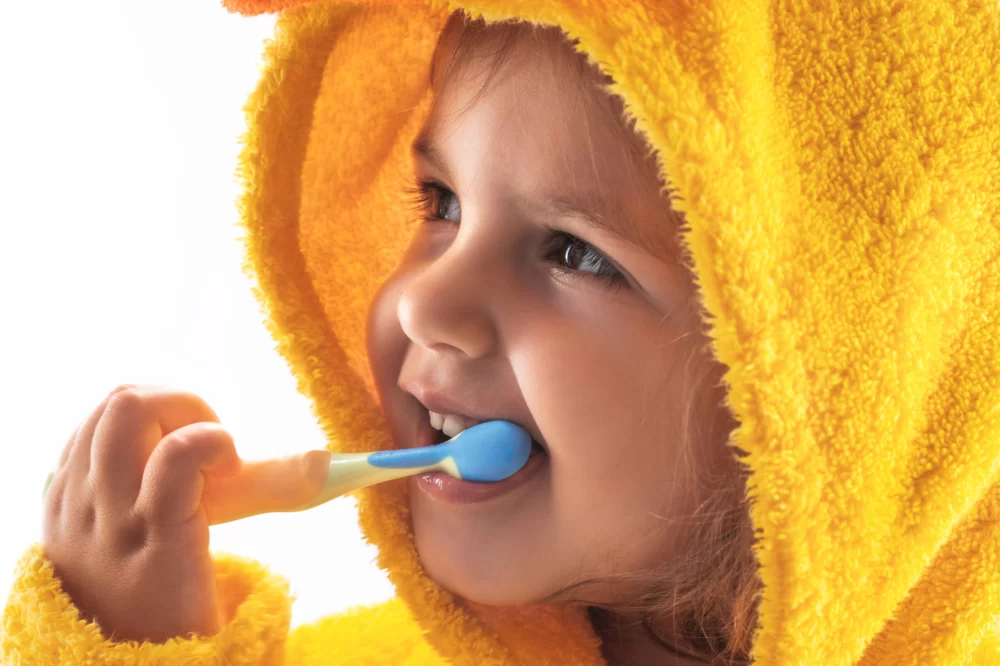
- 1-Importance-of-Oral-Hygiene-for-Children-with-Special-Needs
- 2-Common-Challenges-in-Oral-Care-for-Special-Needs-Children
- 3-Essential-Oral-Hygiene-Tips-for-Special-Needs-Care
- 4-Adapting-Oral-Care-Tools-and-Techniques
- 5-Role-of-Caregivers-and-Professionals
- 6-Real-Life-Stories-Showcasing-Successful-Oral-Care
- 7-How-Dentistry-Toothtruth-Can-Support-Special-Needs-Oral-Care
1. The Importance of Oral Hygiene for Children with Special Needs
Maintaining good oral hygiene is crucial for all children, but it becomes even more significant for children with special needs. These children often face unique challenges that increase their risk for dental problems such as cavities, gum disease, and infections. Proper oral care not only preserves healthy teeth and gums but also contributes to overall health and quality of life.
Oral hygiene tips for children with special needs care must be tailored to accommodate physical limitations, sensory sensitivities, and communication barriers. Recognizing these needs early helps caregivers implement effective routines that promote lasting dental health, preventing complications that might otherwise affect nutrition, speech, and self-esteem.
2. Common Challenges in Oral Care for Children with Special Needs
Children with special needs often encounter obstacles that complicate routine dental care. These can include difficulty cooperating during brushing, hypersensitivity to textures or tastes, limited motor skills, and medical conditions that affect saliva production or oral muscle control. For instance, children with autism spectrum disorder may resist brushing due to sensory overload, while those with cerebral palsy might struggle with manual dexterity.
Such challenges make it essential for caregivers to adapt strategies and exercise patience, understanding that conventional oral hygiene methods may require modification. Ignoring these hurdles can lead to worsening oral health and increased anxiety around dental visits.
3. Essential Oral Hygiene Tips for Children with Special Needs Care
Developing a successful oral care routine starts with consistency and adaptation. Using soft-bristled toothbrushes with easy-grip handles can accommodate limited hand coordination. For children sensitive to brushing sensations, flavored toothpaste or distraction techniques like music and videos can ease the experience.
Regular, gentle brushing at least twice daily, combined with flossing or interdental cleaning adapted to the child's ability, is key. Caregivers should supervise and assist brushing to ensure thoroughness. In some cases, using antimicrobial mouth rinses recommended by dental professionals may add protection.
Scheduling dental check-ups with professionals experienced in special needs care is also vital. Early intervention and personalized advice help prevent serious problems and keep oral health on track.
4. Adapting Oral Care Tools and Techniques to Individual Needs
Customization is central to effective oral hygiene for children with special needs. Electric toothbrushes with timers and pressure sensors can make brushing more efficient and enjoyable. Modified floss holders and water flossers provide alternative cleaning methods when manual flossing is difficult.
Introducing visual schedules and social stories can prepare children for brushing routines and dental visits, reducing anxiety through familiarity. Additionally, caregivers should learn proper positioning techniques to make brushing safer and more comfortable for children with physical limitations.
Collaboration between dental professionals, therapists, and caregivers ensures the use of the best tools and approaches for each child’s unique circumstances.
5. The Role of Caregivers and Dental Professionals in Supporting Oral Hygiene
Caregivers play an indispensable role in reinforcing daily oral hygiene habits and advocating for specialized dental care. Their understanding, patience, and encouragement can transform a challenging task into a manageable routine. Educating caregivers about effective techniques and potential challenges empowers them to act confidently.
Dental professionals trained in special needs dentistry provide tailored treatment plans and preventive care. They can recommend products and methods suitable for each child's abilities and sensitivities. Moreover, frequent professional cleanings and early treatments mitigate risks and establish positive dental experiences.
6. Real-Life Stories Showcasing Successful Oral Care in Special Needs Children
Consider the story of Liam, a young boy with Down syndrome who initially resisted toothbrushing due to sensory issues. His mother worked closely with a pediatric dentist to implement gradual desensitization, introducing a soft electric toothbrush and creating a fun brushing routine with reward charts. Over time, Liam’s cooperation improved dramatically, leading to healthier teeth and less dental anxiety.
Such stories highlight the power of personalized care and perseverance. Sharing these experiences encourages other families facing similar challenges and reinforces that good oral hygiene is achievable with the right support.
7. How Dentistry Toothtruth Can Support Oral Hygiene for Children with Special Needs
For families seeking expert advice, Dentistry Toothtruth offers comprehensive resources and recommendations for oral hygiene products, dental clinics, and special care services tailored to children with special needs. From adaptive toothbrushes to professional consultation, Dentistry Toothtruth connects caregivers to the best options for maintaining optimal oral health.
By providing trusted guidance and facilitating access to specialized care, Dentistry Toothtruth empowers parents and caregivers to build effective, compassionate oral hygiene routines that improve the well-being of children with special needs.







 Oyster Bay Orthodontics5.0 (96 review)
Oyster Bay Orthodontics5.0 (96 review) Desert Valley Pediatric Dentistry - West Olive4.0 (705 review)
Desert Valley Pediatric Dentistry - West Olive4.0 (705 review) NJ Periodontics & Dental Implants5.0 (10 review)
NJ Periodontics & Dental Implants5.0 (10 review) Lasting Smiles Dental Care4.0 (364 review)
Lasting Smiles Dental Care4.0 (364 review) Custom Endodontics4.0 (67 review)
Custom Endodontics4.0 (67 review) Kansas City Dental Implants & Oral Surgery4.0 (229 review)
Kansas City Dental Implants & Oral Surgery4.0 (229 review) The Importance of Oral Health Education During Pregnancy for a Healthy Pregnancy
The Importance of Oral Health Education During Pregnancy for a Healthy Pregnancy Best Tips for Brushing Your Teeth Properly for Healthy Gums: Essential Techniques for Oral Health
Best Tips for Brushing Your Teeth Properly for Healthy Gums: Essential Techniques for Oral Health Why Skipping Dental Checkups Can Lead to Bigger Oral Health Problems
Why Skipping Dental Checkups Can Lead to Bigger Oral Health Problems Advantages of Porcelain Dental Restorations
Advantages of Porcelain Dental Restorations How Can Diabetes Cause Tooth and Gum Problems? Preventing and Managing Oral Health Issues
How Can Diabetes Cause Tooth and Gum Problems? Preventing and Managing Oral Health Issues Healthy Habits for Promoting Good Oral Health and Hygiene: Tips for a Healthy Smile
Healthy Habits for Promoting Good Oral Health and Hygiene: Tips for a Healthy Smile